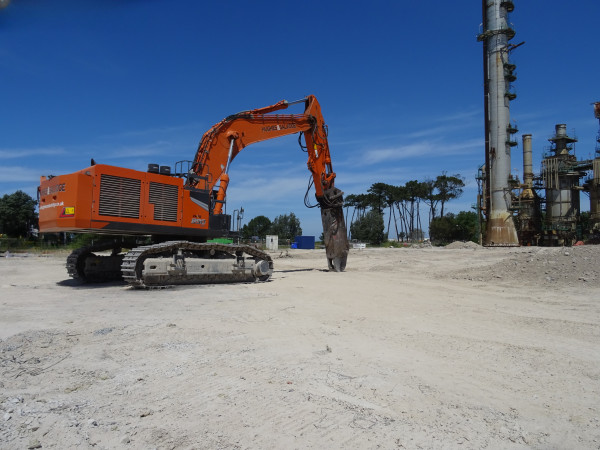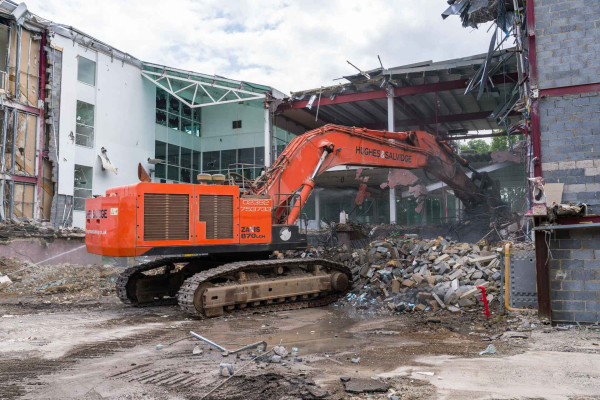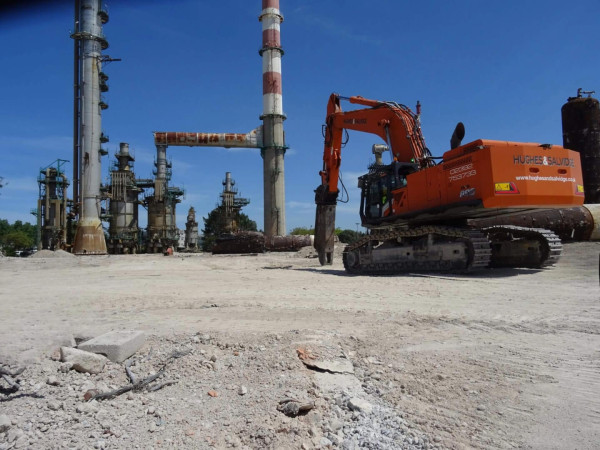Large-Scale Demolition in the UK
Luke Gould 24th July 2023
Demolition projects are frequently required for the redevelopment and transformation of infrastructure, in the UK and further afield. They involve the careful dismantling and removal of existing structures to make way for new developments. Large-scale demolition projects can vary in complexity and require meticulous planning and execution. Here, we will explore some prominent types of such projects, including: airports, decommissioning projects, and more.
Airports:
Demolition works in and around airports represent a significant undertaking due to the extensive infrastructure and their complex day-to-day operations. Airports require careful planning to ensure minimal disruption to air traffic, passengers, and neighbouring areas. Runways, terminals, hangars, and other structures must be systematically deconstructed to make way for expansions or new airports. Additionally, environmental considerations play a crucial role in managing waste materials, minimising dust and FOD (Foreign Object Debris), that can cause issues on an active airfield. Hughes and Salvidge’s considerable experience in this sector has seen us carry out works at numerous airports and airfields both airside and landside. We are the only demolition company with a permanent presence at London Heathrow Airport, having had offices there since 1998.
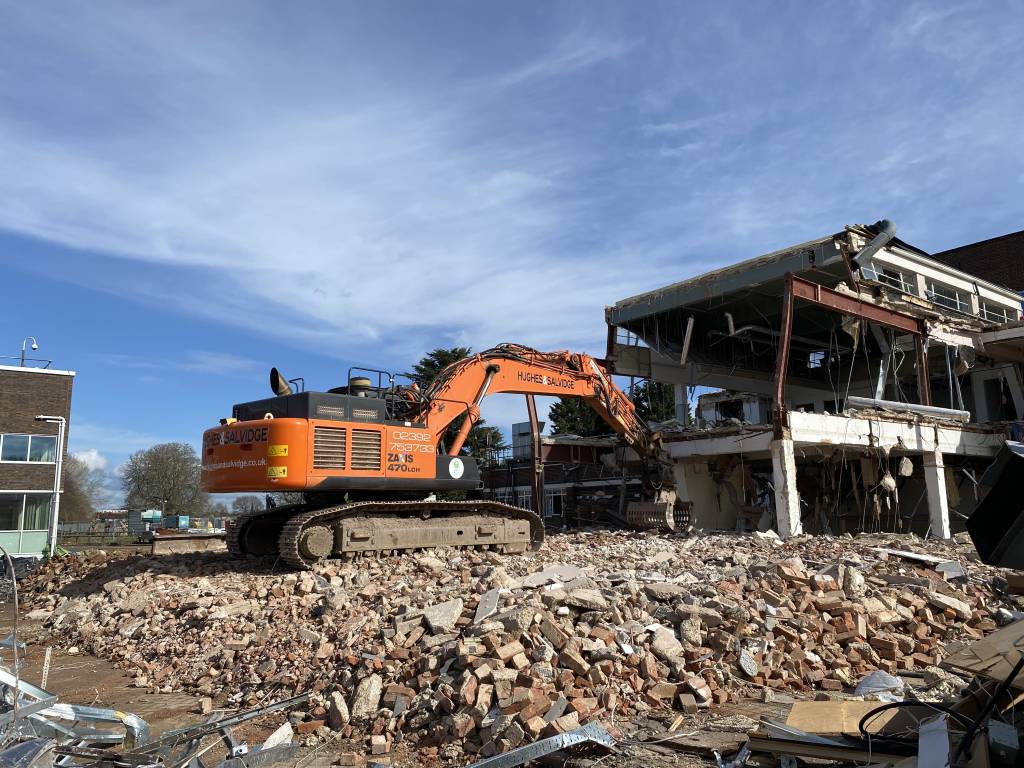
Decommissioning:
Decommissioning is a highly specialised and regulated process that involves the scheduled shut-down, ceasing of operations and safe removal of Industrial, Chemical, Petrochemical, Utilities, or Nuclear facilities. Of course this includes power plants, research reactors, and other radioactive waste management facilities as well as factories, mines, refineries, and much more. The aim is to render these sites free from hazards and restore the land to its original state or repurpose it for other uses. Various techniques are employed to achieve this; such as decontamination, controlled explosions, and dismantling to handle the unique challenges associated with such facilities. Proper waste management and environmental considerations are crucial aspects, ensuring compliance with regulations while minimising the impact on surrounding communities and ecosystems.
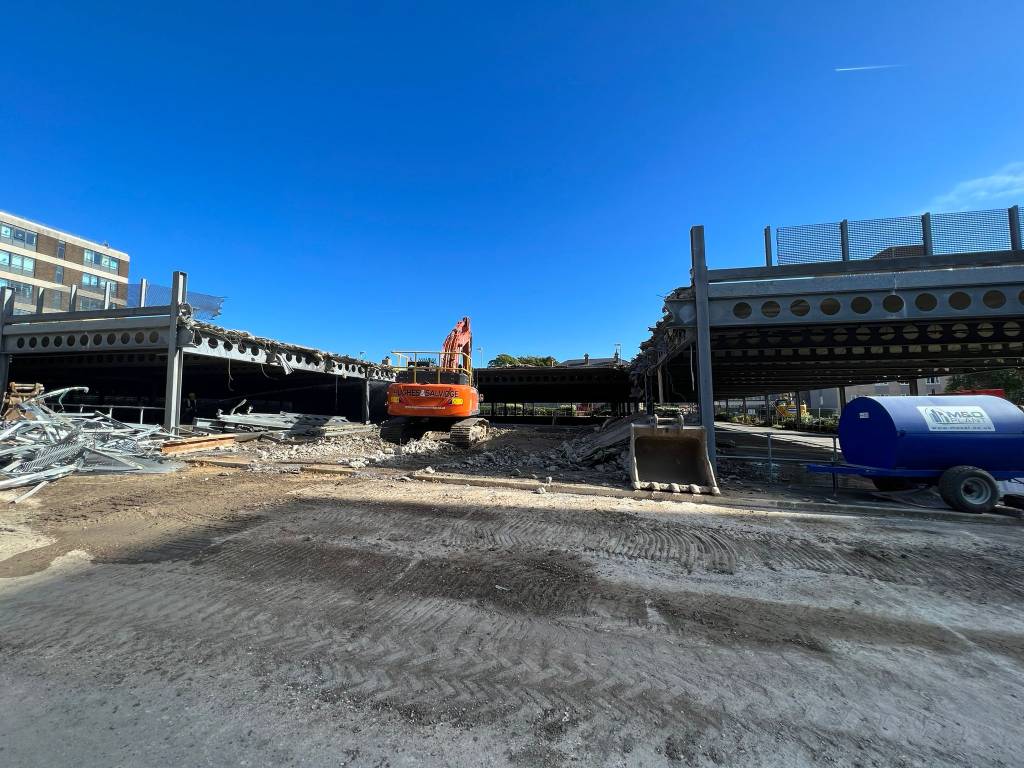
Historic Buildings:
The demolition of historic buildings necessitates a delicate balance between preservation and progress. In cases where restoration or adaptive reuse is not feasible, carefully planned demolition projects can pave the way for new developments while preserving historical elements. This process requires close collaboration between demolition experts and heritage authorities to salvage and protect significant architectural features or artefacts. The aim is to retain the cultural and historical integrity of the site while enabling modernisation.
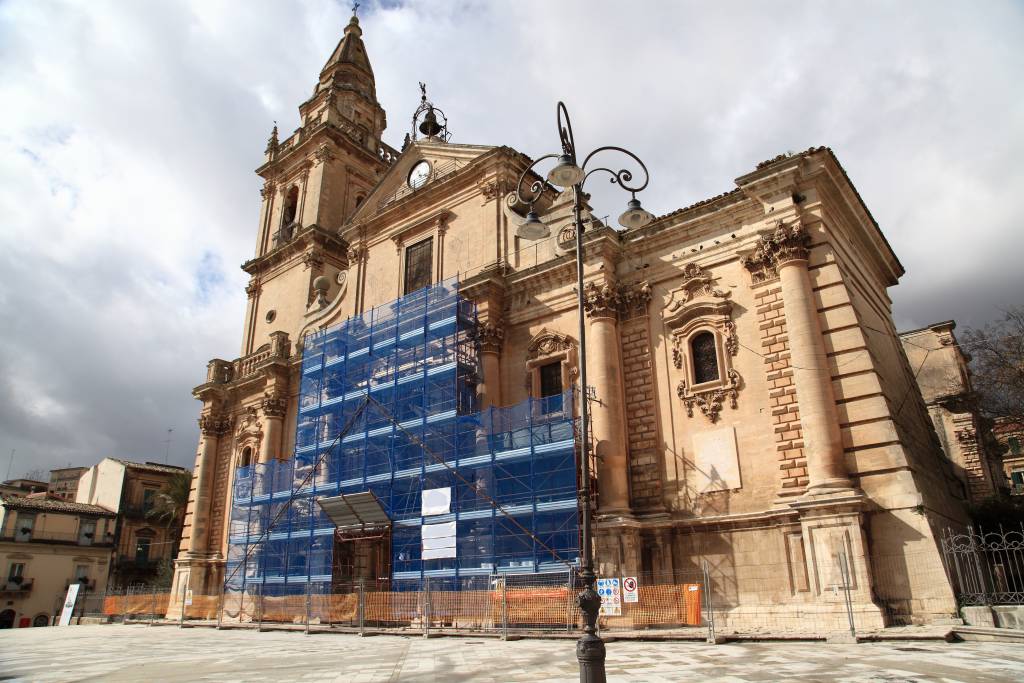
Bridges and Infrastructure:
Demolition projects involving bridges and infrastructure play a vital role in urban development and transportation improvement. Ageing or structurally compromised bridges may require complete removal or replacement to ensure public safety. Demolition techniques, such as selective dismantling or controlled explosives, are employed to minimise disruption to surrounding areas and transportation networks. Environmental considerations, including the management of debris and pollutants, are also important aspects of these projects.
Sports Stadiums:
The demolition of sports stadiums is often driven by the need for modernisation or the construction of new facilities. These projects require meticulous planning to accommodate large spectator capacities, complex structural systems, and potential environmental challenges. Specialised demolition techniques, such as high-reach excavators and precision cutting, are utilised to dismantle stands, roofs, and other components, carefully. Sustainable waste management practices are increasingly employed to minimise environmental impact.
Large-scale demolition projects encompass a diverse range of sectors, each with its unique challenges. From airports and nuclear sites to industrial complexes and historic buildings, careful planning, compliance with regulations, and environmental considerations are critical to ensure safe and efficient demolition. These projects play a vital role in shaping the infrastructure and development landscape, fostering progress and innovation while preserving the cultural and historical heritage of the nation.
Contact us today for a quote.

